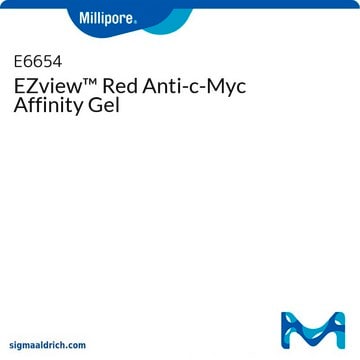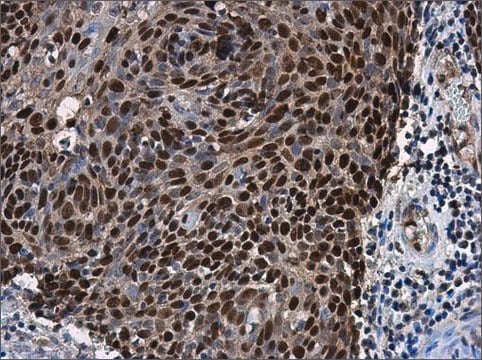PLA0001
Rabbit anti-c-myc Antibody, Affinity Purified
Powered by Bethyl Laboratories, Inc.
Sinónimos:
MRTL, MYCC, avian myelocytomatosis viral oncogene homolog, bHLHe39, c-Myc, class E basic helix-loop-helix protein 39, myc-related translation/localization regulatory factor, proto-oncogene c-Myc, transcription factor p64, v-myc myelocytomatosis viral oncogene homolog
About This Item
Productos recomendados
biological source
rabbit
Quality Level
antibody form
affinity purified immunoglobulin
antibody product type
primary antibodies
grade
Powered by Bethyl Laboratories, Inc.
species reactivity
human
technique(s)
ELISA: 1:1,000- 1:30,000
ELISA: 1:100- 1:500 (for coating plates)
immunocytochemistry: 1:100-1:400
immunoprecipitation (IP): 1- 4 μg/mg
western blot: 1:1,000- 1:30,000
accession no.
NP_002458.2
shipped in
wet ice
storage temp.
2-8°C
target post-translational modification
unmodified
Gene Information
rabbit ... c-myc(4609)
Immunogen
Physical form
Other Notes
Disclaimer
¿No encuentra el producto adecuado?
Pruebe nuestro Herramienta de selección de productos.
Storage Class
12 - Non Combustible Liquids
wgk_germany
nwg
flash_point_f
Not applicable
flash_point_c
Not applicable
Certificados de análisis (COA)
Busque Certificados de análisis (COA) introduciendo el número de lote del producto. Los números de lote se encuentran en la etiqueta del producto después de las palabras «Lot» o «Batch»
¿Ya tiene este producto?
Encuentre la documentación para los productos que ha comprado recientemente en la Biblioteca de documentos.
Los clientes también vieron
Nuestro equipo de científicos tiene experiencia en todas las áreas de investigación: Ciencias de la vida, Ciencia de los materiales, Síntesis química, Cromatografía, Analítica y muchas otras.
Póngase en contacto con el Servicio técnico
















